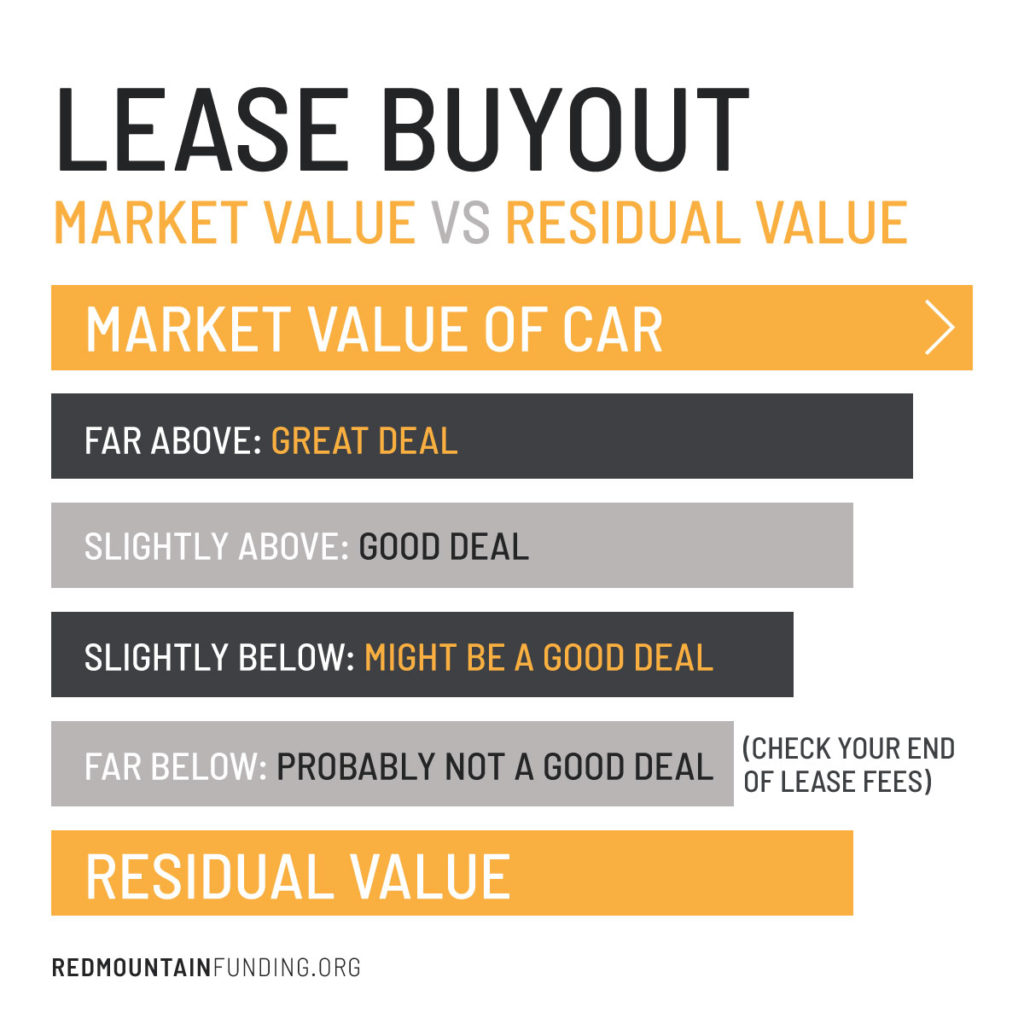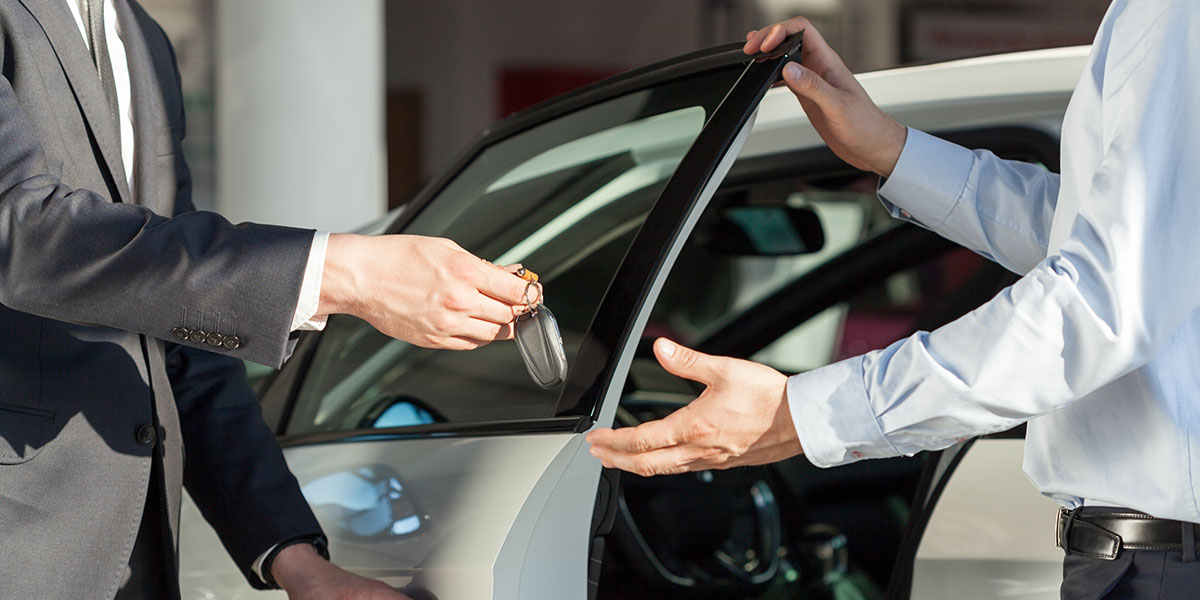It can take years to find your perfect car. Once you have found it, you’ll never want to let go. If you leased your dream car and have decided that you want to buy it, it is important to know whether you are making the right choice and how to correctly go through the process.
Lease-End Buyout
There are two types of lease buyouts:
- Lease-end buyouts
- Early lease buyouts
A lease-end buyout is the more common of the two. With this option, you will pay the residual value at the end of your lease. A vehicle’s residual value is what the car is expected to be worth at the end of the lease. This car lease payoff is negotiable before you sign the contract; you agree on it before the lease begins.
There are two variables to consider in determining whether a lease-end buyout is a good deal. It is imperative to compare the residual value to the true market value. The true market value is the amount that the car is worth on the market today and the price that a vehicle in similar condition is being sold for.
If the price for the buyout is less than the true market value, it is a financially profitable choice. However, you should also consider:
- If you’re happy with the car’s overall performance.
- Has needed many repairs throughout the duration of the lease?
- If there is another car on the market at a similar price that you would prefer.
- Can you finance the buyout at a good interest rate?
Are all of these factors are favorable? Then it is a smart deal to do a lease-end buyout. You will also need to pay lease payoff sales tax, but it will be worth it. It can be safer to do a lease-end buyout than to buy a new car, because you already know the car and its history.
Early Lease Buyout
 The second option for a lease buyout is to do a car lease payoff before the lease ends. Not all dealerships offer early lease buyouts, and some have certain additional stipulations. So be sure to check your contract before deciding to pursue this option.
The second option for a lease buyout is to do a car lease payoff before the lease ends. Not all dealerships offer early lease buyouts, and some have certain additional stipulations. So be sure to check your contract before deciding to pursue this option.
Determining the price of an early lease buyout can be more complicated than trying a lease-end buyout. The dealer calculates the price based on:
- The lease-end residual value on your contract
- The amount left to pay on your lease
- Any depreciation to the car if its value has dropped beneath the current market value
One of the reasons that many people pursue an early lease buyout is because they are worried about lease penalties. Lease penalties could include:
- Going over the allowed mileage
- Not maintaining the car properly
- Damage to the car
An early lease buyout is usually not recommended because of the added fees that come with the depreciation of the car.
Determining the Market Value
For both lease-end and early lease buyouts, determining the market value of the vehicle is a vital part of making the final decision. The current retail price will indicate whether you should buy your lease out or purchase a different car.
Determining market value is a fairly simple process because of the extensive information available online. Great resources include sites such as:
- Cars.com
- NADAguides.com
- Edmunds.com
- AutoSite
- Autopedia
- Kelly Blue Book
- CarPrice.com
The price of the vehicle will vary from site to site, so make sure to visit as many sites as possible to get a more thorough idea of the value.
If the car that you leased is extremely popular on the market, your residual cost will likely be lower than the retail price to buy a different one. In this case, buying out your lease makes more sense than purchasing a different car, because few dealerships are going to offer a similar deal for buying a vehicle outright.
The reality for most people, however, is that the lease payoff quote will be higher than the retail price. Many banks and financing companies inflate the residual price for a leased vehicle, so they are able to offer lower monthly payments for people who leased their cars.
The price of used cars has also been down recently, which often makes buying a different car the more affordable option. Used cars in Mesa, as well as other Arizona used car trade-ins, are no exception to this trend.
Negotiating with the Lender
Paying off a leased vehicle can be a negotiation, so it is important to maintain a powerful position in the interaction. Don’t call the leasing company and ask about buying the lease; let the lender contact you.
Once the leasing company has called you, try not to appear overly enthusiastic or eager. First, tell them that you are going to turn in the car after the lease. After waiting a moment, follow it up by explaining that you think the residual value is too high to justify the buyout. Some larger companies do not allow any negotiation, so this tactic will be more effective with smaller companies.
Help and Guidance for Car Lease Payoffs
If you are considering buying out your lease, Red Mountain Funding can help you. We are a family company that has been helping lower-income families and individuals in Arizona with loans for over 20 years. Contact Red Mountain Funding for advice and assistance in buying out your lease.
I’m a kid at heart disguised as an auto researcher and business owner. I’ve always enjoyed providing insight in the form of reviews (anime, video games, autos, etc.) When I’m not researching, I’m spending time with my family, driving my Dodge Challenger, riding my motorcycle, and finding new entrepreneurial pursuits.



